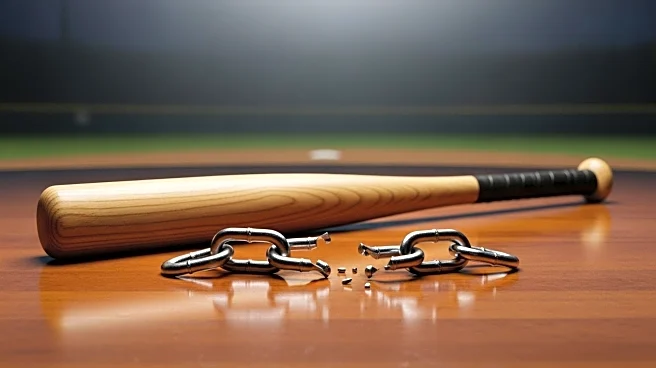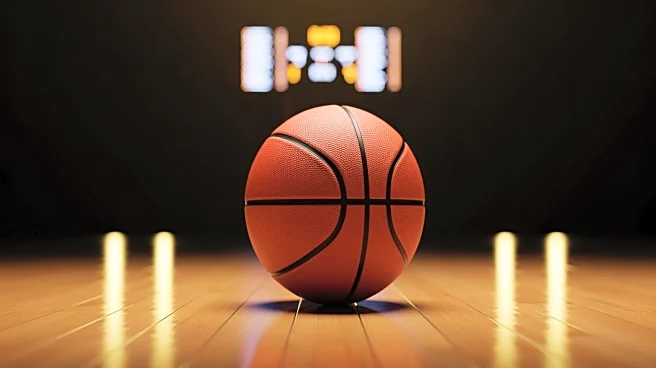What's Happening?
Toronto Blue Jays rookie pitcher Trey Yesavage has publicly addressed the abuse his family has faced following his impressive postseason debut against the New York Yankees. Yesavage, who set a Blue Jays postseason record by striking out 11 Yankees in 5 1/3 hitless innings, expressed his disappointment over the negative attention directed at his family members, including his parents, brothers, and girlfriend. He emphasized that his family should not be subjected to negativity due to his on-field performances. Blue Jays manager John Schneider supported Yesavage's decision to speak out, acknowledging the unfortunate reality of such abuse. Yesavage is scheduled to start Game 2 of the AL Championship Series against the Seattle Mariners.
Why It's Important?
The situation highlights the broader issue of online abuse faced by athletes and their families, raising concerns about the impact of public scrutiny on personal lives. Yesavage's decision to address the abuse publicly underscores the need for greater awareness and action against such behavior. The support from his manager and teammates reflects the importance of standing by individuals facing unwarranted criticism. This incident may prompt discussions within the sports community about measures to protect players and their families from online harassment, potentially influencing policies and support systems in professional sports.
What's Next?
Yesavage's upcoming start in Game 2 against the Mariners will be closely watched, both for his performance and any further developments regarding the abuse issue. The Blue Jays and other MLB teams may consider implementing additional support mechanisms for players dealing with similar situations. The incident could lead to broader conversations about athlete welfare and the responsibilities of sports organizations in safeguarding their members from external pressures.
Beyond the Headlines
The abuse faced by Yesavage's family highlights ethical concerns regarding the treatment of athletes and their families by the public. It raises questions about the role of social media in amplifying negative behavior and the responsibility of platforms to address harassment. The situation may also prompt discussions about the cultural expectations placed on athletes and the need for a more compassionate approach to sports fandom.









